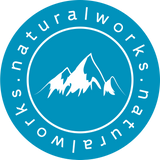
The State of CBD in Switzerland: What’s Legal And What’s Not
Switzerland is considered a hotbed for the cannabis law reforms. Despite being located in central Europe, it is not a part of the European Union. That is the reason why the cannabis market here works irrespective of the reforms done by the European Union. Consequently, selling CBD has been legal in Switzerland for almost a decade as of now.

Is CBD Legal In Switzerland
Before diving into the laws of CBD in Switzerland, we must understand the following things.
- The cannabis plant has many forms, one of which is hemp.
- The cannabis plant has hundreds of cannabinoids (chemical compounds) are derived from the cannabis plant. The two well-known cannabinoids are CBD (cannabidiol) and THC (Tetrahydrocannabinol).
- CBD is a non-psychotropic substance, while THC is psychotropic in nature, which means THC is mainly responsible for producing a feeling of high.
- No matter how precisely CBD is extracted, it usually contains minute traces of THC.
When it comes to the laws that come into play, when someone wants to buy CBD in Switzerland, the amount of THC is the key factor in determining whether that CBD product is legal in Switzerland or not. The cut-off is at 0.1% THC as per the Swiss narcotics legislation. Anything having negligible (up to 0.1% ) THC is not banned and is perfectly legal in Switzerland.
Rationale Behind Regulation of Amount of THC
The prime rationale for the Swiss authorities to legalize CBD with up to 1% THC only, was the fact that CBD products containing less than 1% THC don’t get the feeling of high. Increasing the amount of THC, it becomes narcotic. If the amount of illegal cannabis is below 10 grams, it has been decriminalised.
It is pertinent to understand that possession, production or use of more than ten grams of narcotics are strictly forbidden under Article 19 of the Federal Act on Narcotics and Psychotropic Substances.
Is it Legal to Sell CBD in Switzerland?
Although CBD with 1% THC is legal, yet the government of Switzerland greatly emphasizes its regulation. Government has proposed a list of categories. Each category has its own laws to sell its CBD product without any issues. The categories include food, utility, chemical, medicinal CBD, cosmetics or tobacco substitute. However, CBD products containing more than 1% of THC can only be categorized as medicinal CBD. Medicinal CBD can only be supplied or sold on a doctor’s prescription.
Penalties For Breaking the Law
Breaking the law and selling smaller amounts of CBD may not be a good idea, as fines are imposed keeping the individual’s financial condition in view. However, for sale and supply of CBD products on a large scale, there are more severe penalties with prison terms as well.
